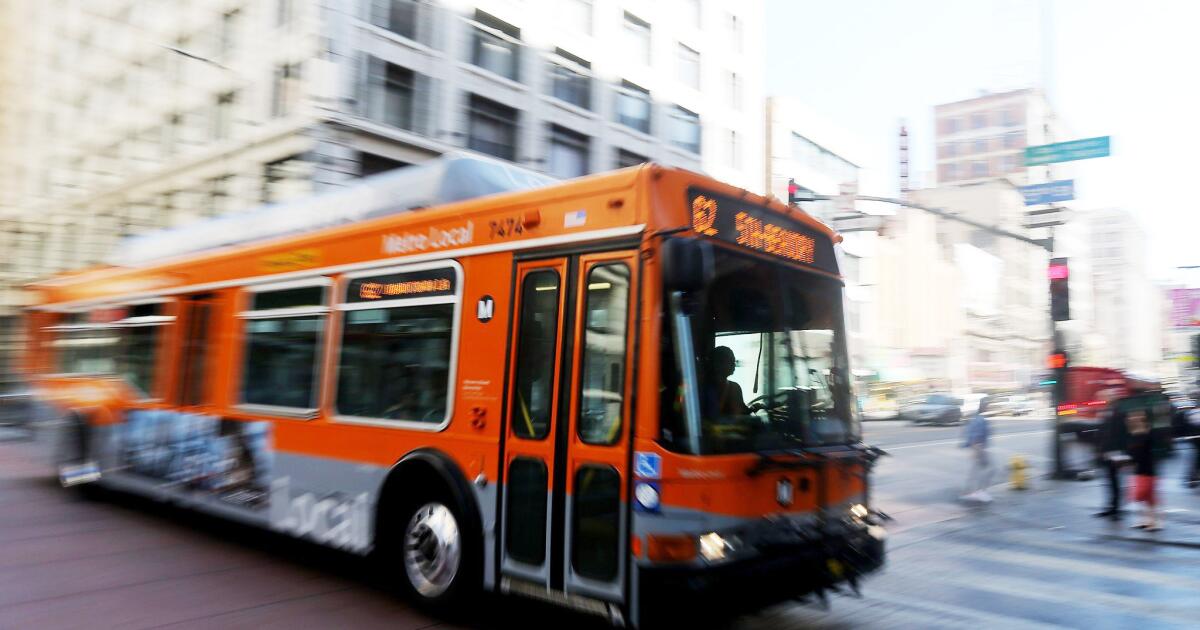AI Cameras Issue Nearly 10,000 Tickets on L.A. Bus Routes

AI Cameras on Los Angeles Metro Buses: A Ticketing Revolution
Overview of the Pilot Program
In just one month, artificial intelligence (AI) cameras mounted on Los Angeles Metro buses issued nearly 10,000 citations for parking violations, as reported by the Los Angeles Department of Transportation. These cameras were first introduced on specific bus line windshields last year, with the ticketing process beginning in mid-February.
Initial Implementation
The cameras initially operated on bus line 212, which runs from Hollywood/Vine to Hawthorne/Lennox, and line 720, which travels from Santa Monica to downtown L.A. via Wilshire Boulevard. Since then, additional bus lines, including line 70 and lines 910 and 950 serving Metro’s J Line, have been added to the coverage area.
How the Cameras Work
These AI-powered systems scan for illegally parked vehicles, capturing detailed evidence of each violation. This includes a video, a photo of the vehicle’s license plate, and relevant time and location data. Each ticket is later reviewed by a human to ensure accuracy. The fines for these violations are substantial, starting at $293 per ticket.
Ticketing Statistics
In the latter half of March, the camera system issued 3,093 citations for vehicles obstructing bus lanes or stops. The numbers escalated rapidly, as the first two weeks of April saw a staggering 6,681 citations. For comparison, prior to the installation of these cameras, enforcement officers averaged around 570 tickets per month for similar violations.
Key Statistics:
- March Citations: 3,093
- April Citations (first two weeks): 6,681
- Previous Average (before cameras): ~570 per month
Purpose and Goals
Metro Board Chair Janice Hahn emphasized that the primary objective of this enforcement initiative is to maintain bus schedules. She noted that any vehicle parked in a bus lane could delay a significant number of passengers. “Without enforcement, a single parked car in a bus lane can delay dozens or even hundreds of riders,” she remarked. The goal isn’t just to issue fines but to ensure buses operate smoothly, enabling better transit options for riders.
Program Details
The project is a collaboration between the Los Angeles County Metropolitan Transportation Authority and Hayden AI, a tech company responsible for developing the camera systems. An $11 million contract was approved last year to implement 100 of these camera systems, with the agreement set to last approximately five years starting in December.
Technology in Action
While the cameras continuously scan for violations, Hayden AI’s chief growth officer, Charles Territo, explained that they only record data when a potential infraction occurs. “If the bus is moving and there’s no vehicle parked in the lane, it’s not recording any data,” he noted. The system is designed to capture license plate numbers and video footage only when a vehicle is parked illegally.
Wider Applications of AI
Similar AI enforcement programs are already in place in cities like Washington, D.C. and New York City, demonstrating the growing trend of employing AI for better transportation safety. Additionally, the regional rail system Metrolink in Southern California recently received $1.3 million in federal funding to create an AI-powered system aimed at detecting unexpected movements on the tracks.
This advancement in technology reflects a significant step toward modernizing transit enforcement and enhancing the efficiency of public transportation systems.




